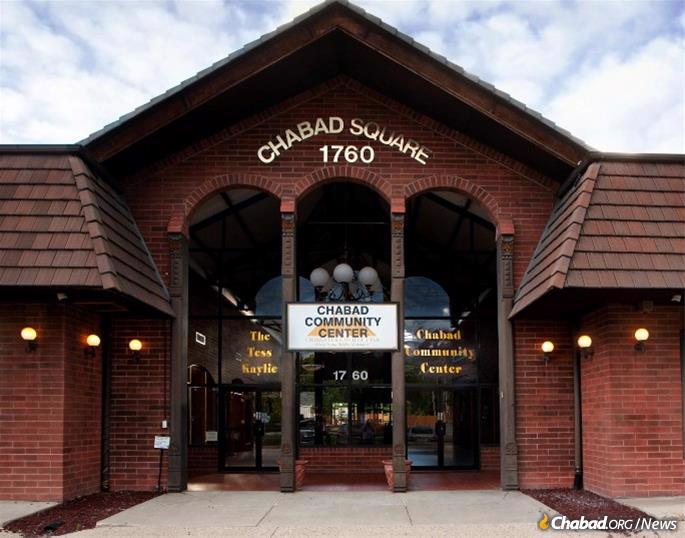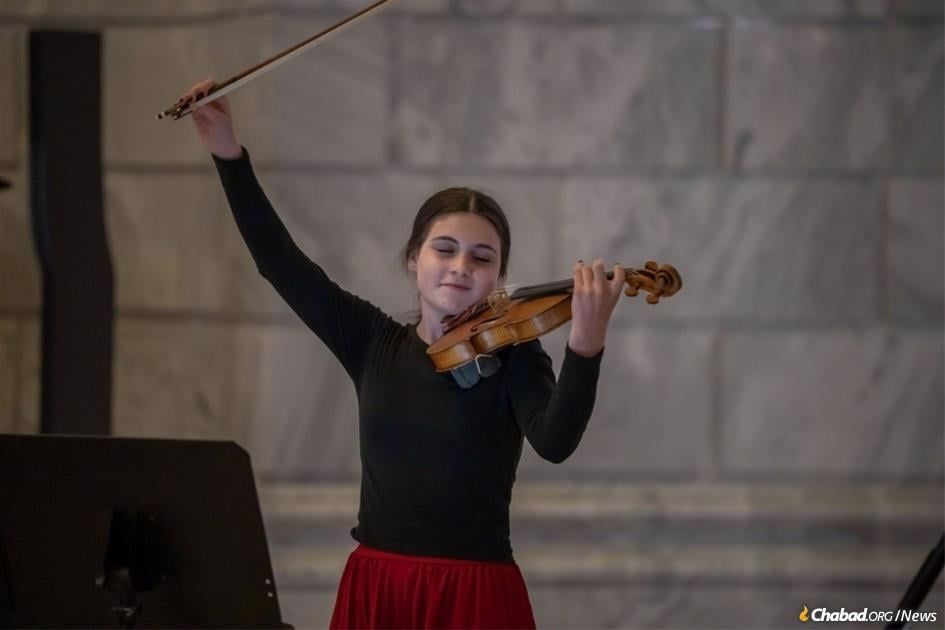As part of our “What’s It Like to Be Jewish” series in which we take a look at Jewish life in places as diverse as the jungles of the Amazon and the teeming streets of Casablanca, we bring you an interview with Mort Fertel, an entrepreneur who relocated from the heavily Jewish centers on the East Coast and now calls stunning Salt Lake City home.
Q: First things first, where are you from, and what drew you to Salt Lake City, Utah?
A: I am originally from Philadelphia. My wife, Ari, and I lived in Boca Raton and then Baltimore before coming to Salt Lake City last spring.
Our oldest four children (including a set of triplets!) were all already out of the house, so we moved here with our youngest daughter, Nesya, who is 13.
Nesya is actually the reason we are here. She is an amazing violinist, and there are training opportunities here that we could not get anywhere else. My work is portable, and my wife’s current occupation is home-schooling our daughter.
Q: Can you describe your surroundings? What is it like?
A: We are very high up, surrounded by desert mountains. So when we look out our window in the morning, we are greeted with stunning scenery.
The area where I live, Sugar House, is mostly apartment buildings and businesses, and feels a bit like a miniature version of the Upper West Side. But when I walk to Chabad, just a few blocks away, I am in suburbia.
Q: What is the Chabad House like?
A: Things are small. And we love it! The Chabad shul is physically beautiful, inviting and fresh, and the friendships that we have made here are special.
Rabbi Benny and Sharonne Zippel founded Chabad-Lubavitch of Utah in 1992, and their children, Rabbi Avremi and Sheina Zippel, joined them in 2014.
I have come to love the rabbi’s sermons, the style of the prayers and the homey atmosphere that you can only get in a really small community, where every person is treasured and needed.
There is also a mikvah here, which is crucial to Jewish life. Thanks to Rabbi Zippel’s teaching, I now immerse on Shabbat mornings, something I did not do before moving here.

Q: What is the Jewish community like? Are they mostly longtime Utahns?
A: We are an eclectic group, and almost no one is originally from here. There is a strong contingent of Israelis, who came here for business. And there are also many young professionals, who came here to work for major corporations.
The community is mostly singles and couples and relatively few children.
That said, the Zippels have started a small preschool, which I understand is excellent.
Q: Is there kosher food? How about dining?
A: You can buy kosher food in the supermarket, but there are no kosher restaurants here. We eat a whole-food, plant-based diet. Since we only purchase fruits, vegetables and grains, we have not been missing anything. But I would imagine that families with a more typical diet would find it more challenging than we have.

Q: What’s it like to be a Jew living in a city that’s the center of another religion?
A: By and large, it is very healthy. There is a very strong ethic of respect, decency, honesty, charity, and kindness. We feel that people relate to and appreciate our culture and morals more than in other places with a more secular orientation.
Also, it’s much easier for my wife to shop for clothing, since most women wear modest clothing, favoring long skirts and dresses, long sleeves, and other tzniut style clothing.
I remember noticing it at my daughter’s first violin recital. I turned to my wife and said, “This is not how the girls dress back home.”
Q: Has anyone tried to proselytize you? Is religion a big part of public life in your experience?
A: I knew you were going to ask that. The answer is no to both questions. Actually, there was one person who tried to do so, which made me uncomfortable. But maybe that is because I had engaged him in conversation about his beliefs and practices. I think he thought he was just being nice.
Q: How have people responded to the fact that you are visibly Jewish with a kippah on your head?
A: Really, things are exactly as it has been anywhere else I have lived. It’s not like people look at you like you have three heads or something.
Q: Is there anything that surprised you about Jewish life in Salt Lake City?
A: The truth is that I did not have very specific expectations, so nothing was surprising to me. If anything, I’ve been pleasantly surprised by the warm welcome we have received, and how easily and comfortably we’ve become part of this beautiful, warm and loving community.





Join the Discussion